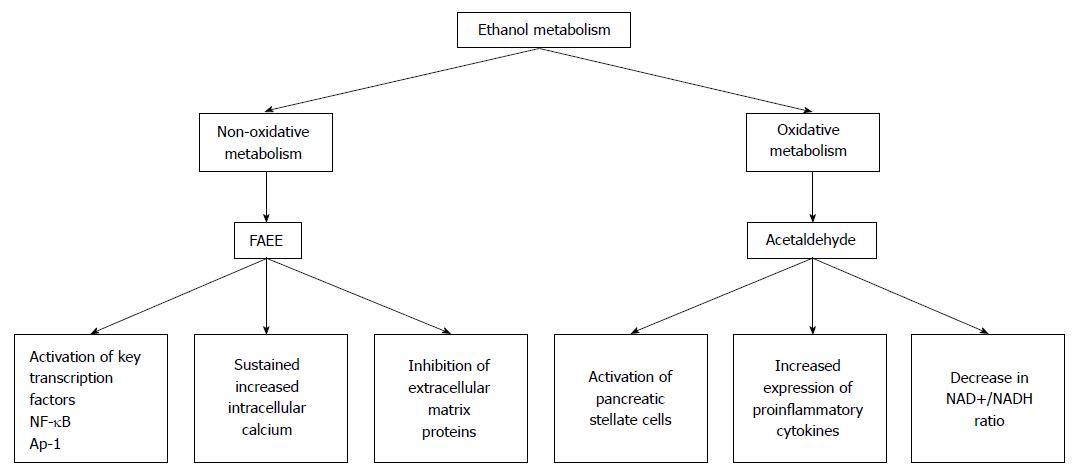Copyright
©The Author(s) 2016.
World J Gastrointest Pathophysiol. Feb 15, 2016; 7(1): 48-58
Published online Feb 15, 2016. doi: 10.4291/wjgp.v7.i1.48
Published online Feb 15, 2016. doi: 10.4291/wjgp.v7.i1.48
Figure 1 The by-products of ethanol metabolism cause a number of changes in the pancreas.
In the pancreas, ethanol is metabolized by both nonoxidative and oxidative pathways. The major by-products of the nonoxidative metabolism of ethanol are FAEEs. The major metabolic by-product of the oxidative metabolism of ethanol is acetaldehyde. Metabolism of ethanol by both of these pathways has been shown to cause a number of changes that can predispose the pancreas to acute pancreatitis. FAEE: Fatty acid ethyl ester; NF-κB: Nuclear factor-κB.
Figure 2 Consequences of sustained increased intracellular calcium in pancreatic acinar cells.
Ethanol and its metabolic by-products can cause sustained increases in the level of intracellular calcium. Sustained increases in intracellular calcium results in cellular changes that can damage pancreatic acinar cells. Many of these changes can predispose individuals to the development of alcoholic acute pancreatitis. MPTP: Mitochondrial permeability transition pore; ER: Endoplasmic reticulum.
- Citation: Clemens DL, Schneider KJ, Arkfeld CK, Grode JR, Wells MA, Singh S. Alcoholic pancreatitis: New insights into the pathogenesis and treatment. World J Gastrointest Pathophysiol 2016; 7(1): 48-58
- URL: https://www.wjgnet.com/2150-5330/full/v7/i1/48.htm
- DOI: https://dx.doi.org/10.4291/wjgp.v7.i1.48










